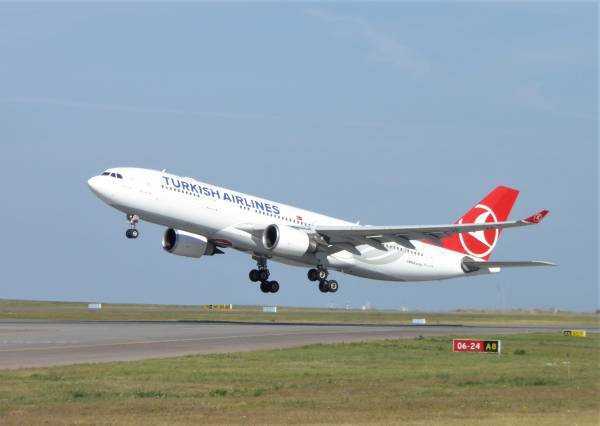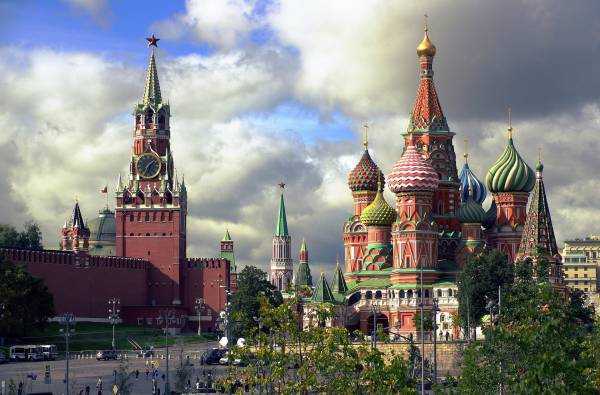
The first swallow of 2018 was the company Polar Tour, which on June 15 announced its inability to fulfill its obligations under sub-agency agreements. It was later revealed that the company had been operating on the market as an agency, booking tours from major tour operators for other agencies and taking a portion of the commission for itself. At the same time, it was not included in the unified federal register of tour operators and the association "Turpomoshch" and did not conclude liability insurance contracts, which would have allowed the affected tourists to receive compensation.
Petersburg tour operator "Matryoshka Tour" announced the cessation of operations on June 23. The company's problems began in December, when Chinese authorities refused to allow Ikar Airlines to operate flights to Hainan Island. After that, the tour operator was forced to repay tourists for tickets on more expensive regular flights, as well as accommodate them in hotels while they waited for their flights. All this, together with compensation for those who did not fly, led to the cancellation of charter programs to Israel and Bulgaria.
In April, the Central Bank revoked the license of Investstrakh Insurance Company, which insured Matryoshka's liability to tourists. Due to its negative image on the market, the company was unable to find a new insurer and announced that it was ceasing operations. By that time, it had almost no tours sold in advance, as it was mainly engaged in paying compensation. In general, Matryoshka's departure was not a surprise to the market and did not cause any major upheavals.
On June 26, Rostourism announced the exclusion of the company from the unified federal register of tour operators "Premium Travel Group" from Stavropol. Earlier, the tour operator sent a notice to the regulator about the termination of its activities. The company itself told the Interfax-Tourism portal that the number of affected tourists will not exceed 20, and all of them will have enough payments within the framework of the tour operator's financial guarantees.
Company "Aurora BG" from St. Petersburg informed agencies on Friday that it was canceling charter programs to Bulgaria and Montenegro. Apparently, this statement is directly related to the situation with Matryoshka Tour, since Aurora BG is a company that belonged to the same owners until April 2018 and was sold to pay tourists compensation. According to a source in the market, the actual owner of the company did not change during the sale, as well as the staff. The company had 400 tourists abroad at the time the charters were stopped. In total, according to various sources, about a thousand tourists will suffer from the cancellation of charters. Aurora promised to return their money, but so far clients are complaining about the tour operator's refusal to do so.
On June 29, the company "Natalie Tours" reported that from June 30, it was cutting charter programs to Spain, Italy, Greece and Turkey. The owner of the company, Vladimir Vorobyov, said that the host company in Spain refused to cooperate with Natalie due to debts, which is why it is impossible to send tourists, since they will not be served. He called on agencies to support the oldest tour operator (the company was founded in 1992) and give it the opportunity to negotiate with new host companies and replace hotels for tourists. However, after negative information about the company spread across the market, host companies in different countries refused to accommodate the tour operator's clients due to non-payment. On July 4, V. Vorobyov announced that he was stopping sales of new tours and canceling all applications until October 1, 2018. According to him, several thousand clients bought the tour operator's vouchers.
CEO of the company DSBW Tours, also one of the oldest in the market, operating since 1991, announced the suspension of operations on July 3. According to him, the company had long been "honestly fighting to preserve the business." He said that the company had sold about 1,100-1,200 tours in advance, financial guarantees and a personal liability fund should be enough to take tourists out. According to experts, the company had long had problems and financial difficulties.
Why now?
Despite the external similarities – the media reports one after another about the cessation of operations – each unhappy tour operator is unhappy in its own way. If the exit from the market of Matryoshka Tour, which has had problems since December 2017, was quite predictable, then the bankruptcy of Polar Tour turned out to be a complete surprise for travel agencies.
Although there is a common negative background for all companies - a decrease in demand for outbound tours. "In general, the 2018 season turned out to be difficult for tour operators. February and March were great, early sales for foreign tours were all records, companies reported growth of 20-40 and even 70%, especially in Turkey. As it turned out, early sales are not the whole season. Now the situation is not so good - the decline in sales reaches 10-15% compared to the same period last year. The main reason is the fall of the ruble against world currencies in early April, due to which foreign tours became more expensive by the same 10-15%," says Irina Tyurina, press secretary of the Russian Union of Travel Industry.
The second reason, according to her, was the World Cup. Tour operators increased the volume of transportation and hotel quotas, counting on sales growth, and many fans decided to stay home to watch the matches. Another problem, as the expert notes, was the rising cost of aviation fuel due to the general rise in prices for petroleum products. This led to an increase in airfare prices and the cost of charter flights for tour operators.
"In such difficult conditions, strong companies with a safety cushion survive, but for those who already had problems, the decline in demand becomes fatal," says I. Tyurina. According to her, this also applies to Natalie Tours, which did not do well after the 2014-2015 crisis, and DSBW Tours.
"The situation with Matryoshka Tour is different. The company was young and quite conscientious, and tried to fulfill its obligations until the very end. It paid tourists 20 million. As far as I know, the owner took money from his other business for this. They were prompted by the fact that in April the Central Bank revoked the license of the insurance company Investstrakh, where the tour operator's liability was insured. And it was very difficult for them to conclude a new contract, since the company had a negative image in the market. The revocation of the license untied their hands. They were able to declare the cessation of operations and stop paying tourists," added I. Tyurina.
Polar Tour Special Case
Polar Tour's departure is most likely not due to a decline in demand, but to a change in the rules of the game on the market by large tour operators. "This company was an intermediary - it booked tours not only for its own tourists, but also for clients of other travel agencies. Giving operators large volumes, it had preferences - deferred payments, increased commission, including due to which it gave prices lower than the operator's, which attracted tourists. Polar Tour lived on 2-3% from the commission plus working capital received from subagents. And recently they have been especially active in reducing prices for tours, which may indirectly indicate a desire to collect money from the market before leaving," said the press secretary of the Russian Union of Travel Industry.
According to experts, the situation with Polar Tour is currently the most difficult on the market. As agencies and tour operators counted their losses, it turned out that the number of agencies and tourists affected by its closure was 10 times higher than the initial data. Thus, if immediately after the company's shutdown they talked about 2 thousand affected tourists, now their number has reached 20 thousand, and the amount of damage exceeds 200 million rubles. At the same time, the company did not have financial guarantees, and therefore tourists cannot receive compensation. Among the agencies, there are those whose applications were for a million rubles. Now they are forced to either cancel them and deal with the tourists, or pay tour operators from their own funds.
The affected agencies have created a group, hired lawyers and are trying to force tour operators to fulfill their obligations under the contracts concluded with Polar Tour. Some believe that tour operators are deliberately hiding information about paid applications made through Polar. At the same time, some of them, on the contrary, are going to meet the agencies halfway and turning a blind eye to underpayments for tours or offering to book again with discounts.
"Tourpomoshch" warned
Director of the Association of Outbound Tour Operators "Turpomoshch" Alexander Osauenko believes that the current crisis was expected. "Outwardly, yes, the situation is similar to 2014. We said two or three years ago that we would approach a similar peak of companies operating in the market not entirely in good faith, semi-legally. If in 2014 officially registered companies were leaving, then the main problem in the current situation is the departure from the market of an intermediary who had concentrated significant volumes. We once again tell travel agencies first and foremost that the legislation today protects their clients and their money. But not all of them, unfortunately, use the mechanisms that exist," he emphasized.
According to him, market participants have developed habits of working according to certain schemes that are difficult to combat. For example, they mechanically bought discounted tours from Polar Tour, without paying attention to the legal formalities.
"As a result, it turned out that only a few, less than one percent of the total number of agencies of the company, worked in accordance with the law on tourist activity. No one could prove that they transferred money to tour operators. Such situations with tears, one might even say bloody, still teach the market. The agent market is slowly beginning to come to light," A. Osaulenko emphasized.
Let us recall that most agencies that worked with Polar Tour chose this company because of the big discounts. Some of the agencies were individual entrepreneurs and could not work directly with large tour operators. Many did not draw up contracts and transferred money for tours to the cards of individuals - Polar employees. Because of this, it is now difficult for them to prove that the money for the tours was transferred.
Systemic crisis or not
On Wednesday, the head of Rostourism Oleg Safonov stated that there is no systemic crisis in the tourism market, but there is an incorrect assessment of the market situation and inflated expectations of growth in outbound tourist flows among individual companies. He recalled that funds have been created on the basis of the Tourpomoshch Association - a reserve fund and a personal liability fund, the total volume of which exceeds 1 billion rubles. In accordance with the requirements of the law, tour operators have insured their civil liability to tourists (the total amount of insurance coverage today is 22 billion rubles). Thus, consumers of tourism services are provided with financial guarantees in sufficient volume.
One can agree with the assessment of the head of the relevant department – mechanisms for protecting tourists have been created and generally work. However, situations like those with Natalie or Polar Tour periodically arise when they are powerless for various reasons.
Maya Lomidze, Executive Director of the Association of Tour Operators (ATOR), also believes that the current problems of companies cannot be used to draw conclusions about the situation on the entire market. “Their total volume does not exceed 1% in the total volume of outbound tourism. We are surprised by the resonance that the problems of these companies have caused. Perhaps this is due to the fact that these are old and well-known brands. But in terms of real weight on the market, these are micro, not large companies,” she emphasizes.
Source: tourism.interfax.ru













